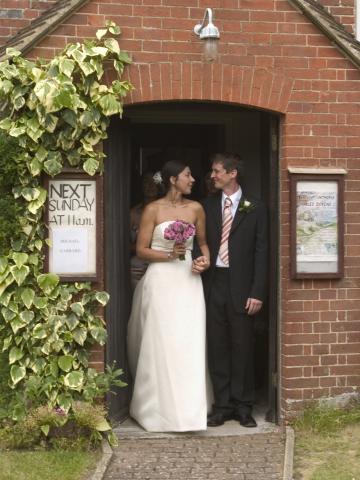
A Unitarian Charity Bike Ride
Community without creed
If Unitarians don’t necessarily believe all the same things then why bother getting together at all? Because to us sharing experience, perspectives, differences and ideas is a powerful way to explore and expand our personal ideas of faith. And where better to enjoy that exploration than in a diverse, tolerant community that welcomes each individual for themselves, complete with their beliefs, doubts and questions?
Local congregations
There are around 170 local congregations in the UK, most of which are in England with four in Scotland and over twenty in Wales. The purpose of a Unitarian congregation is:
- to meet the spiritual needs of the individual in the context of a loving community;
- to share joy and to offer comfort in times of trial;
- to enjoy warmth of fellowship;
- to make itself welcoming, inclusive and a blessing to the wider world.
Congregations may be called churches, meetings, chapels or fellowships. They may have a minister – who may be a woman or a man – or be led by a lay person or a leadership group. They vary considerably in size, from over a hundred to fewer than ten, and in the scope of their activities. They meet in their own buildings, in hired premises or in private homes.
Services and worship
At the heart of Unitarianism is worship, which usually takes place on Sundays. Unitarian worship reflects what each particular community regards as being of supreme worth. A Unitarian service may include:
- celebration of life;
- affirmation of shared values;
- recognition of our failings;
- worship of the divine;
- commitment to the meeting of human need;
- encouragement of human potential.
Many elements may be used to contribute to the worship experience including, in some congregations, communion. Where practised, communion expresses in simple sharing and fellowship our thanks for Jesus and all ‘great souls’, solidarity with the cause of human welfare and recognition of our dependence on the earth’s divine bounty.

‘Christenings’, weddings and funerals
The association of the words ‘baptism’ and ‘christening’ with original sin and hell – two things unitarians disavow – means that many Unitarians are uncomfortable with them and instead prefer the term ‘naming ceremony’. Although the title is different the event is just as meaningful: naming ceremonies celebrate new life, the commitment of parents to their child and the love created. The ceremony also welcomes the child into the religious fellowship, the ‘universal church’, and the wider community of humanity and of life on earth. It does not have to take a christian form.
Weddings and civil partnerships
Each Unitarian wedding and civil partnership is unique because each couple has unique beliefs and aspirations about what they are doing. Unitarians have been at the forefront of campaigns for same-sex marriage. If the ceremony is really to mean something, then it is essential that it reflects what the couple really feel. In preparing for it, the couple are encouraged to talk and think very seriously about what they want for the ceremony and for their continuing life together.
We help those planning their ceremonies to make it an occasion that is unique to them. Part of that can include couples choosing and even writing their own vows. Nothing is imposed that the couple do not want or cannot say in all sincerity (provided that certain legal requirements are met). The Minister, or celebrant, is ready with advice and guidance.
Funerals
Wherever possible a Unitarian ceremony to mark someone's death and celebrate their life is true to that person and sensitive to the needs and feelings of the bereaved. Respect for the deceased's convictions is very important and Unitarians are usually willing to provide celebrants for those who might otherwise find it hard to find one, such as humanists.
It is also an opportunity to offer pastoral care if needed and requested. But Unitarians do not use the emotional vulnerability of people in mourning to evangelise or impose our own beliefs on them. Unitarians have no particular view on whether the dead should be buried or cremated. As ever we are flexible and sensitive to individual preferences.
National societies
Joining a national society is a great way to be welcomed into a distinct community in addition to – or even instead of – joining a local congregation.
As well as the National Unitarian Fellowship, which is general in nature, there are many organisations catering for specific constituencies and interests. These include women's groups and young adult groups, societies interested in Unitarian history, church music and open fellowships concerned with peace issues and with meditation.
Visit our Get involved page for more information on joining a local or national Unitarian community, or jump straight into finding a local congregation.
